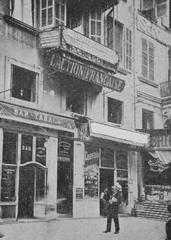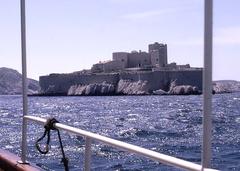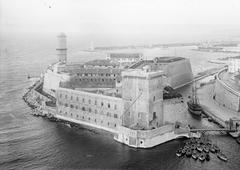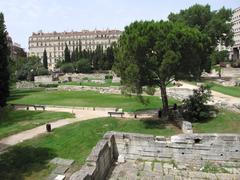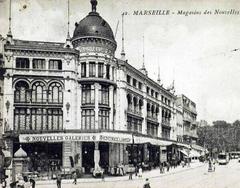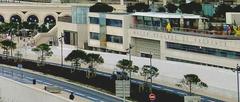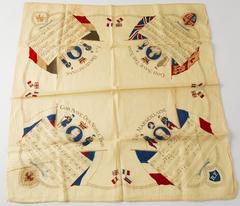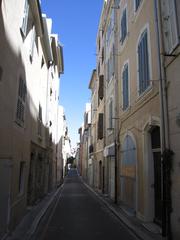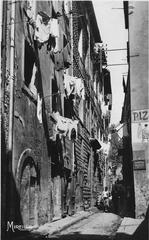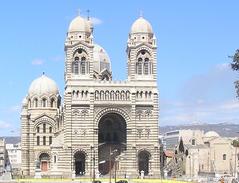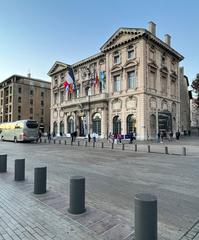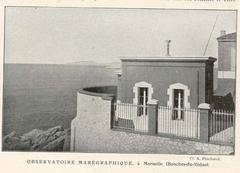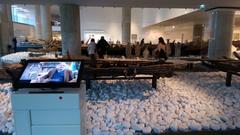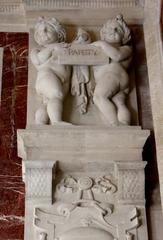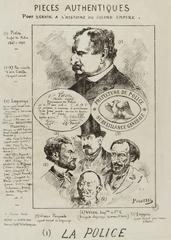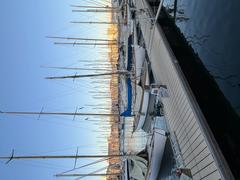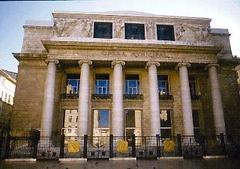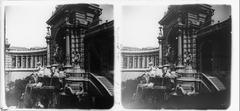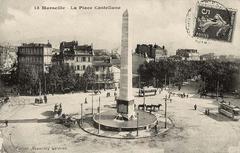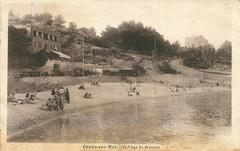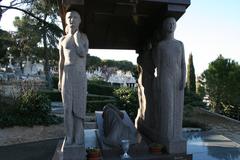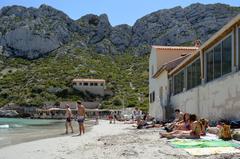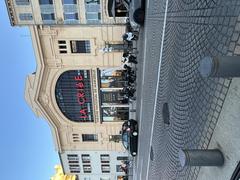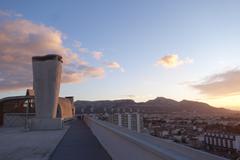Château Borély Marseille: Visiting Hours, Tickets, and Visitor Guide
Date: 04/07/2025
Introduction
Château Borély is a crown jewel of Marseille, celebrated for its elegant 18th-century Provençal neoclassical architecture and vibrant artistic life. Set within the lush Parc Borély, this historic château is now home to the Musée des Arts décoratifs, de la Faïence et de la Mode (Museum of Decorative Arts, Earthenware, and Fashion), offering a rich journey through history, art, and culture. Whether you are passionate about heritage, design, or tranquil gardens, Château Borély promises an exceptional experience in the heart of Marseille (marseille.fr; Wikipedia).
Table of Contents
- Origins and Construction
- Architectural Significance
- Notable Events and Historical Transformations
- Visiting Château Borély: Practical Information
- Special Events and Guided Tours
- Château Borély in Marseille’s Cultural Heritage
- Legacy and Continuing Significance
- Architectural Style and Historical Context
- Exterior Features and Gardens
- Interior Layout and Decorative Arts
- Artistic Collections and Museum Significance
- Artistic Programming and Temporary Exhibitions
- Accessibility and Visitor Experience
- Visitor Information
- Integration of Architecture and Art
- Museum Overview
- Cultural Significance
- Visitor Experience and Practical Information
- Parc Borély Visiting Hours, Tickets, and Guide
- Summary and Call to Action
- References
Origins and Construction
Château Borély is rooted in the ambitions of Louis Borély (1692–1768), a prominent Marseille merchant whose family had been part of Provence’s economic elite for centuries. After returning from Egypt in 1767, Borély sought to outdo traditional Provençal bastides by commissioning a grand estate in the Bonneveine district, then a rural area outside Marseille.
The initial plans were drawn by Jean-Louis Clérisseau, famed for his Italianate neoclassical style. Esprit Brun later adapted these plans to French tastes, ensuring the château’s monumental yet refined character. Construction was managed by Louis-Joseph Denis Borély, Louis’s son and a patron of the arts, and completed between 1767 and 1778 (marseille.fr).
Architectural Significance
Château Borély exemplifies the neoclassical transition from Baroque exuberance to elegant restraint. The symmetrical façade, featuring a central corps de logis flanked by wings and approached via a grand staircase, reflects Enlightenment ideals of harmony and order. Interiors, painted by Louis Chaix after his study tour in Italy, are adorned with trompe-l’œil, grisaille, and mythological scenes, complemented by gypseries and gilded woodwork, creating an opulent yet balanced ambiance (marseille.fr).
The château’s original gardens were designed in the French formal style but later expanded and partially re-landscaped in the English style, mirroring evolving tastes in landscape architecture.
Notable Events and Historical Transformations
Over the centuries, Château Borély has welcomed illustrious guests, including Charles VI of Spain, the Duchess of Berry, Alfred de Vigny, and Eugène Scribe. The estate’s fortunes shifted during the French Revolution, and it changed hands before being acquired by the City of Marseille in the 19th century.
From 1863 to 1989, the château housed the city’s archaeological museum. After major restorations, it reopened in 2013 as the Museum of Decorative Arts, Earthenware, and Fashion, displaying a diverse collection of decorative arts and fashion (marseille.fr).
Visiting Château Borély: Practical Information
Visiting Hours:
Open Tuesday–Sunday, 10:00 AM–6:00 PM. Closed on Mondays and select public holidays. Check the official website for updates.
Tickets and Booking:
- Adults: €8
- Reduced rate (students, seniors): €5
- Free for children under 18 and Marseille residents.
Tickets are available online or at the entrance. Advance booking is recommended during peak periods.
Accessibility:
Wheelchair accessible, with elevators and ramps. Assistance for visitors with reduced mobility is available.
How to Get There:
- Address: 132 Avenue Clot Bey, 13008 Marseille
- Metro Line 2 to Rond-Point du Prado, then a 10-minute walk
- Bus lines 19 and 83
- Limited parking available nearby
Nearby Attractions:
Close to Prado beaches, Palais Longchamp, and vibrant neighborhoods with numerous cafes and restaurants (marseilletourisme.fr).
Special Events and Guided Tours
Regular guided tours focus on architecture, history, and collections. Seasonal exhibitions and cultural events, including fashion shows and art workshops, provide fresh experiences throughout the year. Photography is welcomed in most areas (flash restrictions may apply).
Château Borély in Marseille’s Cultural Heritage
Château Borély stands as Marseille’s most opulent bastide, reflecting the aspirations of the city’s merchant class. Its transformation from private estate to public museum underscores a commitment to cultural accessibility and enrichment. The surrounding Parc Borély remains a beloved community space for leisure and cultural events (marseille.fr).
Legacy and Continuing Significance
Meticulously restored, Château Borély bridges history and modernity. Its collections span over 2,500 works of decorative art, faience, and fashion, narrating Marseille’s evolving artistic story. The château continues to inspire artists, designers, and historians, serving as a living monument and creative hub (marseille.fr).
Architectural Style and Historical Context
The château’s neoclassical design reflects the refined tastes of Marseille’s 18th-century elite. Symmetry, classical pilasters, and harmonious proportions evoke Enlightenment ideals. Originally conceived as a bastide, the estate embodies both Parisian and Italianate influences, blended with Provençal traditions (Wikipedia; Marseille Tourisme; Made in Marseille).
Exterior Features and Gardens
Set within the 17-hectare Parc Borély, the château is approached through a formal French garden with geometric parterres and fountains, contrasting with the English-style landscape garden added in the 19th century. The park also features a Japanese garden, commemorating Marseille’s partnership with Kobe, Japan (Budget Your Trip; Marvellous Provence).
Interior Layout and Decorative Arts
The château’s interiors retain original 18th-century decor, enhanced by later interventions. The central entrance leads to a succession of salons and apartments, each with its own artistic focus (Guide En-Vols).
Salon d’Honneur: Stucco, gilded moldings, and painted ceilings. Currently features blue-and-white ceramics inspired by Chinese porcelain (Musées de Marseille PDF).
Salon Doré: Lavish gilding and displays of haute couture evening gowns.
Grand Salon: Explores blue in 18th-century fashion and painting, with period portraits and furnishings.
State Bedroom: Showcases Indian printed textiles, reflecting Marseille’s historic textile trade. Contemporary art is integrated throughout the décor.
Artistic Collections and Museum Significance
The museum displays about 2,500 pieces at any time, spanning:
- Furniture: French cabinetry and marquetry from the 18th and 19th centuries.
- Ceramics & Earthenware: Notably Marseille and Moustiers faïence (Musées de Marseille PDF).
- Textiles & Fashion: Haute couture and contemporary creations, with frequent rotations to protect delicate items (Guide En-Vols).
- Contemporary Art: Regularly features works by modern artists, maintaining a dialogue between past and present.
Artistic Programming and Temporary Exhibitions
The château’s dynamic exhibition program includes:
- “Infiniment bleu” (March 2025–February 2026): Examines the symbolism of blue in art and fashion, with objects from the château and partner museums (Arts Spectacles; Noblesse & Royautés).
- Past exhibitions: Topics like surrealism in fashion, and collaborations with contemporary designers (Provence-Alpes-Côte d’Azur Tourism).
Family-friendly activities and workshops are available by reservation.
Accessibility and Visitor Experience
Recent renovations have ensured full accessibility, with elevators and adapted facilities. The gardens offer restful spaces for reflection, blending French, English, and Japanese styles (Marvellous Provence).
Visitor Information
Hours:
Tuesday–Sunday, 10:00 AM–6:00 PM (last entry 5:30 PM). Closed Mondays and major holidays.
Tickets:
- Adults: €8
- Reduced: €5
- Free for under-18s and residents
Tickets available onsite and online. Check for free entry on the first Sunday of each month (WhichMuseum).
Facilities:
Museum shop, restrooms, accessible routes.
Nearby:
Prado beaches, rose garden, Marseille Hippodrome.
Integration of Architecture and Art
The museum preserves the authenticity of original 18th-century decor—stucco, gilding, painted panels—while showcasing both historical and contemporary art. This creates an immersive, ever-evolving visitor experience (Guide En-Vols).
Museum Overview
Occupying 1,600 m², the museum’s thematic rooms—golden lounge, library, bedroom, and chapel—present a coherent narrative of Marseille’s decorative arts and fashion, enhanced by modern design elements (Provence-Alpes-Côte d’Azur Tourism).
Cultural Significance
Château Borély is a national monument and an icon of Marseille’s artistic, commercial, and social heritage. The focus on decorative arts and fashion reflects the city’s historic role in Mediterranean trade and innovation. The ongoing “Infiniment bleu” exhibition celebrates the deep symbolism of blue in Marseille’s identity (Fréquence Sud).
Visitor Experience and Practical Information
Location:
Parc Borély, 132 Avenue Clot Bey, 13008 Marseille
Transport:
Metro Line 2 (Rond-Point du Prado), buses 19, 83, and bike-sharing stations nearby.
Tips:
- Exhibit labels in French; guided tours and audio guides available.
- Plan 1–2 hours for the château, plus extra time for the park.
- Non-flash photography allowed.
- Family-friendly and accessible.
Accommodation:
Nearby hotels and apartments cater to a range of preferences (HikersBay).
Parc Borély Visiting Hours, Tickets, and Guide
Hours:
Parc Borély is open daily, 6:00 AM–9:00 PM (monumentsdemarseille.com).
Admission:
Free entry.
Key Features:
- French and English gardens
- Lake, café, and sculpture “L’Homme aux oiseaux”
- Botanical and rose gardens
- Playground and recreational amenities
- Art installations and seasonal events
Accessibility:
Wheelchair accessible main paths; some areas uneven.
Transport:
Metro Line 2 (Rond Point du Prado), buses 19, 44, 83, nearby bike stations.
Tips:
Best visited in spring/early summer. Picnics welcome. Dogs allowed on leash.
Contact:
- Parc Borély: +33 4 91 76 59 38
- Château Museum: 04 91 55 33 60
Summary and Call to Action
Château Borély is an essential stop for those exploring Marseille’s cultural and historical landscape. Its neoclassical architecture and curated museum collections, combined with seasonal exhibitions like “Infiniment bleu,” provide a rich narrative of Marseille’s heritage (marseille.fr; Arts Spectacles). The tranquil expanses of Parc Borély, with its diverse garden styles, offer a perfect complement for relaxation and exploration (marseilletourisme.fr).
Stay informed about visiting hours, tickets, and events by visiting official museum and tourism websites. Enhance your experience with guided tours and family-friendly activities. Download the Audiala app and follow Château Borély on social media for updates, digital guides, and exclusive content. Experience the living legacy of Marseille at Château Borély—where history, art, and culture converge.
References
- Visiting Château Borély: History, Tickets, and Marseille’s Premier Historical Site, 2025, marseille.fr (marseille.fr)
- Visiting Château Borély: Hours, Tickets, and Exploring Marseille’s Historic Landmark, 2025, Wikipedia; Marseille Tourisme; Made in Marseille (Wikipedia, Marseille Tourisme, Made in Marseille)
- Visiting Château Borély: Hours, Tickets, and Guide to Marseille’s Museum of Decorative Arts, 2025, Spotting History; Provence-Alpes-Côte d’Azur Tourism; WhichMuseum (Spotting History, Provence-Alpes-Côte d’Azur Tourism, WhichMuseum)
- Parc Borély Visiting Hours, Tickets, and Guide to Marseille’s Historic Green Oasis, 2025, marseilletourisme.fr; tourisme-marseille.com; marseille.city-life.fr (marseilletourisme.fr, tourisme-marseille.com, marseille.city-life.fr)
